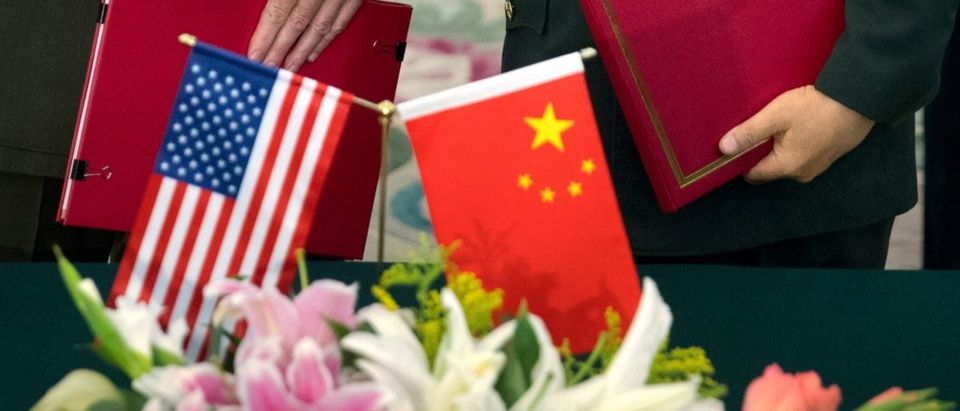Over 100 CEOs signed a letter Wednesday urging members of the U.S. Congress to pass bipartisan legislation that increases U.S. economic opportunities against China.
CEOs of the nation’s top companies, including Adobe Inc., Alphabet Inc., HP Inc., and IBM, signed an “urgent” letter pushing Congress “to achieve a bipartisan, bicameral compromise on competitiveness legislation” meant to boost U.S. advantage over China, according to the letter.
This morning, 123 CEOs & execs from businesses in critical sectors issued a unified call to Congress: Enact bipartisan competitiveness legislation that strengthens the economy and sharpens America’s innovation edge in #semiconductors. Read their letter: https://t.co/9H83ofL1zO pic.twitter.com/E71NKReL75
— SIA (@SIAAmerica) June 15, 2022
“The competitiveness legislation pending in Congress is critical to the U.S. economy, national security, and supply chain resilience,” the letter stated. “The bill includes important measures to invest in research and technology leadership, workforce development, and domestic manufacturing and strengthened supply chains, including investments in key areas such as semiconductors vital to our entire economy.”
The letter was organized by the Semiconductor Industry Association (SIA) in an effort to implore Congress to invest in critical sectors that, without the investment, would cause the U.S. economy to fall behind other countries. (RELATED: Intel To Invest $20 Billion In ‘Largest’ Chip-Making Plant ‘On The Planet’)
“Our global competitors are investing in their industry, their workers, and their economies, and it is imperative that Congress act to enhance U.S. competitiveness,” the letter stated.
There are several bills in Congress intended to increase semiconductor manufacturing and fix supply chain issues, including S.1260. The bill passed the U.S. Senate on June 8 and earmarked $52 billion to increase the number of U.S. fabrication plants (fabs) to boost domestic chip production.
SIA CEO John Neuffer told Reuters that passing this legislation will help “ensure that more of those [fabrication plants] are going to be built in the U.S. rather than overseas.”
“The leaders of our industry are under pressure to get fabs up to respond to the growing demand for chips. And they can’t wait,” Neuffer told Reuters.
U.S. Secretary of Commerce Gina Raimondo released a statement in February also urging Congress to pass this legislation to keep the U.S. economy competitive.
“I’m urging Congress to move quickly to begin negotiations and work out the differences between the bills, focus on areas of common agreement, and get a final version to President Biden’s desk for his signature,” Raimondo stated. “Getting this bill signed into law will create good jobs, rebuild American manufacturing in every corner of the country, strengthen and restore our supply chains, and allow our industries to outcompete China and the rest of the world in the 21st century.”


